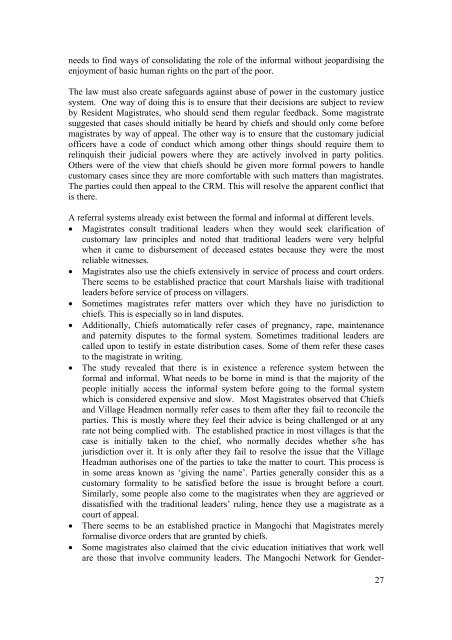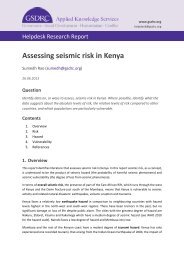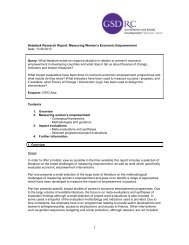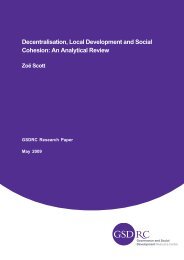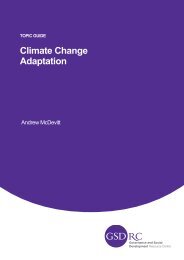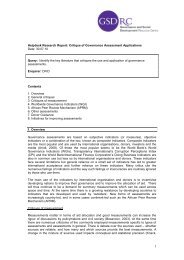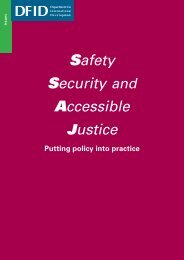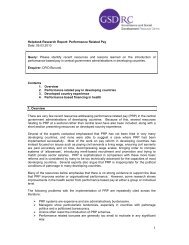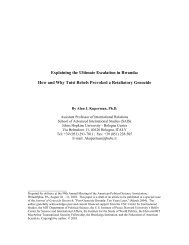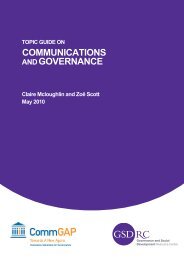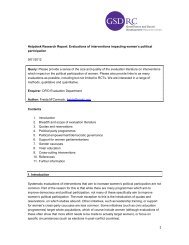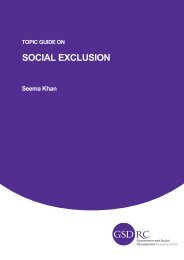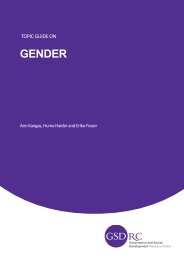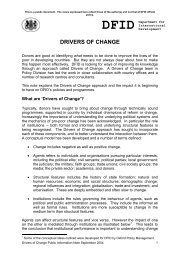ACCESS TO JUSTICE FOR THE POOR OF MALAWI? AN ... - GSDRC
ACCESS TO JUSTICE FOR THE POOR OF MALAWI? AN ... - GSDRC
ACCESS TO JUSTICE FOR THE POOR OF MALAWI? AN ... - GSDRC
- No tags were found...
Create successful ePaper yourself
Turn your PDF publications into a flip-book with our unique Google optimized e-Paper software.
needs to find ways of consolidating the role of the informal without jeopardising theenjoyment of basic human rights on the part of the poor.The law must also create safeguards against abuse of power in the customary justicesystem. One way of doing this is to ensure that their decisions are subject to reviewby Resident Magistrates, who should send them regular feedback. Some magistratesuggested that cases should initially be heard by chiefs and should only come beforemagistrates by way of appeal. The other way is to ensure that the customary judicialofficers have a code of conduct which among other things should require them torelinquish their judicial powers where they are actively involved in party politics.Others were of the view that chiefs should be given more formal powers to handlecustomary cases since they are more comfortable with such matters than magistrates.The parties could then appeal to the CRM. This will resolve the apparent conflict thatis there.A referral systems already exist between the formal and informal at different levels.• Magistrates consult traditional leaders when they would seek clarification ofcustomary law principles and noted that traditional leaders were very helpfulwhen it came to disbursement of deceased estates because they were the mostreliable witnesses.• Magistrates also use the chiefs extensively in service of process and court orders.There seems to be established practice that court Marshals liaise with traditionalleaders before service of process on villagers.• Sometimes magistrates refer matters over which they have no jurisdiction tochiefs. This is especially so in land disputes.• Additionally, Chiefs automatically refer cases of pregnancy, rape, maintenanceand paternity disputes to the formal system. Sometimes traditional leaders arecalled upon to testify in estate distribution cases. Some of them refer these casesto the magistrate in writing.• The study revealed that there is in existence a reference system between theformal and informal. What needs to be borne in mind is that the majority of thepeople initially access the informal system before going to the formal systemwhich is considered expensive and slow. Most Magistrates observed that Chiefsand Village Headmen normally refer cases to them after they fail to reconcile theparties. This is mostly where they feel their advice is being challenged or at anyrate not being complied with. The established practice in most villages is that thecase is initially taken to the chief, who normally decides whether s/he hasjurisdiction over it. It is only after they fail to resolve the issue that the VillageHeadman authorises one of the parties to take the matter to court. This process isin some areas known as ‘giving the name’. Parties generally consider this as acustomary formality to be satisfied before the issue is brought before a court.Similarly, some people also come to the magistrates when they are aggrieved ordissatisfied with the traditional leaders’ ruling, hence they use a magistrate as acourt of appeal.• There seems to be an established practice in Mangochi that Magistrates merelyformalise divorce orders that are granted by chiefs.• Some magistrates also claimed that the civic education initiatives that work wellare those that involve community leaders. The Mangochi Network for Gender-27


